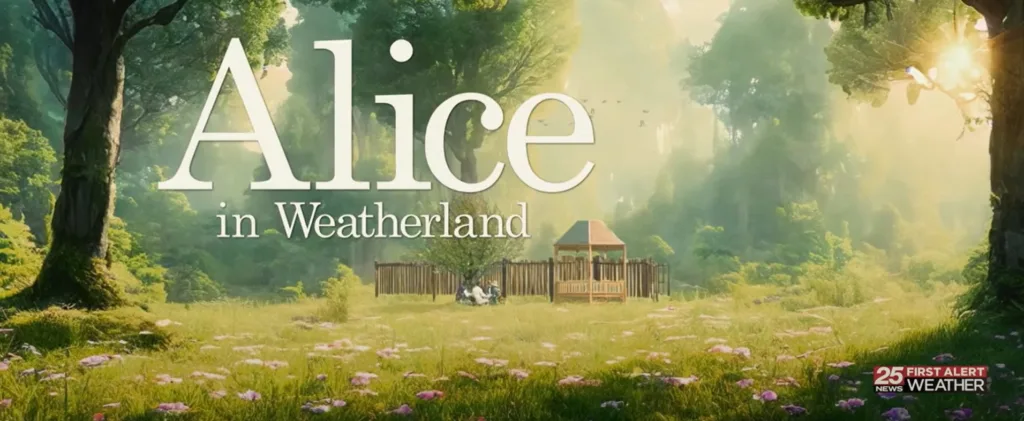
Washington Heats Up During Retrans Week
It was Retrans Week in Washington, which was very much like Shark Week on Discovery, except that sharks swimming through bloody chum in an eating frenzy are generally more likable than lobbyists circling a congressional hearing room. (Just kidding, my GR friends.)
Two committees — the House Judiciary Subcommittee on Courts, Intellectual Property and the Internet and the House Communications Subcommittee — held hearings that gave the MVPDs a platform to air their grievances and renew their call for retrans reform.
The NAB and the American Television Alliance (ATVA), the consortium of MVPDs that is leading the charge on retrans reform, battled it out with old-fashioned display ads in congressional publications and then in back-to-back phoners with the media.
And TVNewsCheck even got in on the action, posting a column in which ATVA chief spokesman Brian Frederick challenged NAB’s assertion that Time Warner Cable, Dish and DirecTV were purposefully causing retrans blackout to get the attention of Congress.
My big takeaway from the week is that ATVA is making progress, at least in convincing lawmakers that a problem exists. Judging by their comments, I would say there is growing concern about the blackouts that periodically deprive constituents of their favorite broadcast TV shows.
“[O]ur top priority will be to protect the interests of consumers,” said Howard Coble (R-N.C.), chairman of the House judiciary panel. “When there’s a dispute and it results in a blackout, consumers are left with no recourse.”
Added committee member Sheila Jackson (D-Texas): “If it [a blackout] occurs at all, it’s a difficult challenge for many of us who deal with our constituents.”
For ATVA, the timing of the hearings was good, coming as they did in the wake of the four-week blackout involving the CBS O&Os and millions of Time Warner Cable subscribers. That standoff was top of mind for many.
At this point, I think that even ATVA will concede that it is still a long way from convincing majorities in the House and Senate that the blackout problem is so terrible, so pervasive that retrans needs to be fixed so that broadcasters can’t so easily deny their signals to the MVPDs.
But, as I wrote last week, all broadcasters need to take ATVA and its threat to retrans revenue deadly serious. In the reauthorization of the Satellite Television Extension and Localism Act (STELA) next year, ATVA has an ideal legislative vehicle for undermining broadcasters’ retrans rights. NAB was smart to answer point-for-point the ATVA propaganda, with its own ad and press conference.
Here are some other retrans thoughts inspired by the week:
Broadcasters shouldn’t apologize for demanding big hikes in the retrans fees until parity is reached between the percentage of the TV audience they draw and the percentage of the MVPDs’ programming budget they receive. Right now, broadcasters are delivering at least a third of the audience, but getting only a tenth of the loot. In effect, broadcasters are subsidizing all those cable networks like ESPN, TBS and USA that are competing ferociously with them for advertising dollars.
Broadcasters are vulnerable to the charge that the retrans revenue is not being used to strengthen local broadcasting as Congress intended when it endowed stations with retrans rights in 1992. Much, if not most, of the money that affiliates are getting from retrans is being sent right back out the door to the networks that are using it to pay for increasingly costly TV sports rights. In other words, retrans cash is going to quarterbacks, shortstops and centers rather than to coverage of brush fires, floods and tornadoes.
In these kind of battles, the sides are incessantly calling each other out as hypocrites. But whatever hypocrisy the broadcasters are guilty of pales to that of Time Warner Cable, one of the lead members of ATVA. As NAB spokesman Dennis Wharton likes to point out, at the same time it decries how retrans forces up cable rates, TWC in Los Angeles is adding two regional sports channels that will add a whopping $8 to the cost of its basic cable tier.
For the life of me, I don’t understand how the fact that TV stations are also available for free over the air has anything to do with retrans and what they would charge a third party to retransmit their signals. Yet, this seems to be one of the MVPDs’ bedrock arguments.
Frederick threw it out there once again in his TVNewsCheck column. I’ll let broadcast attorney John Hane answer it this time by repeating a comment he attached to the bottom of the column.
“If the government policy is you can charge MVPDs anything you want for programming UNLESS you also give the programming away for free to non-subscribers, then guess what? All of the programming is going to be bought by and distributed on pay-only channels. Non-subscribers lose the programming altogether.”
Frederick says that it is “absurd to think” that TWC, Dish and DirecTV would intentionally cause retrans blackouts because the last thing those companies would want to do is upset their subscribers. I suggest that he educate himself on the history of the companies’ customer relations and service.
I will agree with him, however, when he says that “the video marketplace today is anything but a true free market.” The basic business relationship between MVPDs and broadcasting is governed by two congressional inventions — the compulsory license and retransmission consent. The former was created primarily to benefit cable operators; the latter, broadcasters.
If it would make Frederick and his clients feel better, we could repeal both provisions and go to a “true free market” in which broadcasters and MVPDs would have full copyright liability just as cable networks do. It would take a whole lot of lawmaking and lawyering and a small fortune to convert to a market regime, and the industries would end up in pretty much the same place they are today. I don’t quite see the point.
Former Disney lobbyist Preston Padden has been championing this idea for years. In fact, he made another pitch for it Tuesday before the House judiciary subcommittee, dismissing the current system as a Rube Goldberg contraption.
I hoped you enjoyed Retrans Week as much as I. We will surely have many more between now and late next year when STELA comes to a final vote.
Harry A. Jessell is editor of TVNewsCheck. He can be contacted at 973-701-1067 or [email protected]. You can read earlier columns here.




































Comments (2)
Don Thompson says:
September 15, 2013 at 10:14 am
Great column. I think many people, including NAB officials, were unprepared for tough questioning from lawmakers affiliated with both parties. Broadcasters’ worst moment came when blasting cable for even attempting to secure exclusive TV Everywhere rights while defending to the bitter end all of their government-granted local exclusivity rights. Gallingly, TV stations will use NFL games as retrans leverage while refusing to support elimination of the FCC’s NFL sports blackout rule. Do MVPDs get a refund when the NFL game is blacked out locally because too few people want to pay $40 to park, $125 for a decent seat and $9.99 for a Bud in plastic bottle?
Wagner Pereira says:
September 16, 2013 at 12:46 pm
Did TWC customers get a refund when TWC dropped CBS for over a month? No, thus showing that even if MVPD’s got a refund for a blacked out game, they would put it in their pockets, not pass it on to Consumers.